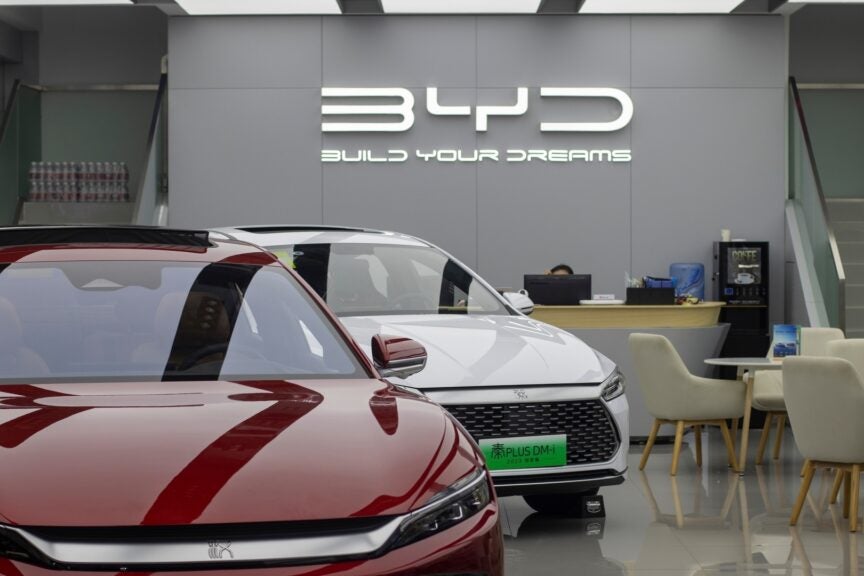Scandal Unveiled: BYD Faces $45 Million Lawsuit Over Human Trafficking Allegations in Brazil
The Chinese electric vehicle manufacturer BYD is currently facing a significant legal challenge, with a $45 million lawsuit filed against it over serious allegations of human trafficking and inhumane working conditions at its factory in Brazil. This lawsuit not only raises concerns about BYD’s labor practices but also highlights broader issues within the global supply chains of electric vehicle production.
Understanding the Allegations
The lawsuit, brought forth by a coalition of labor rights groups, claims that BYD has been complicit in human trafficking practices, leading to severe exploitation of workers at its facilities in Brazil. According to court documents, workers have reported being subjected to hazardous working conditions, excessive hours without appropriate compensation, and a lack of basic rights and protections.
One of the most alarming aspects of the allegations is the assertion that some workers were recruited under false pretenses, lured by promises of stable employment and fair wages, only to find themselves trapped in situations resembling modern slavery. Such practices are a stark violation of both Brazilian labor laws and international human rights standards.
The Broader Context of Labor Practices
This scandal is not isolated; it reflects a troubling trend in the global supply chain for electric vehicles, where labor practices often fall short of ethical standards. As demand for electric vehicles surges, driven by the global push for sustainability and cleaner energy, concerns about labor conditions in the industry are coming to the forefront.
The rise of companies like BYD, which has positioned itself as a leader in the electric vehicle market, underscores the need for rigorous oversight and accountability in labor practices. This situation raises critical questions: How can companies ensure that their supply chains are free from exploitation? What mechanisms are in place to protect workers?
Exploiting Vulnerabilities
Many workers in Brazil, particularly those in marginalized communities, are vulnerable to exploitation due to economic instability and limited employment opportunities. The promise of work in booming industries like electric vehicle manufacturing can be tantalizing, but it often leads to dire consequences when companies prioritize profits over people.
- Economic Pressure: Many individuals are driven by desperation to accept any job, leaving them susceptible to exploitation.
- Lack of Regulation: Insufficient enforcement of labor laws can lead to companies flouting regulations without consequence.
- Corporate Accountability: There is often a disconnect between corporate policies and the reality on the ground in factories.
Implications for BYD and the Industry
For BYD, the implications of this lawsuit are profound. The company risks not only financial repercussions if the allegations are proven true, but also significant damage to its reputation. As global consumers become more conscious of ethical consumption, companies must prioritize transparent and humane labor practices.
The electric vehicle industry, while championed for its potential to reduce carbon emissions, is now at a crossroads. How it responds to labor issues will shape its future and influence consumer trust. A failure to address these concerns could undermine the industry’s sustainability narrative.
Looking Ahead: The Future of Labor Practices in the EV Industry
The outcome of this lawsuit could set a precedent for how labor practices are scrutinized in the electric vehicle sector. If BYD is found liable, it could catalyze a broader reckoning within the industry, prompting other manufacturers to re-evaluate their labor practices and supply chain management.
Moreover, it could lead to increased regulatory pressure from governments and advocacy groups, pushing for stricter enforcement of labor rights and protections. As consumers demand more accountability, companies may need to invest in systems that ensure compliance with ethical labor standards.
Call to Action: Advocating for Change
The allegations against BYD serve as a critical reminder of the importance of ethical labor practices in all industries, particularly those that are rapidly evolving like electric vehicles. As stakeholders, including consumers, investors, and policymakers, it is essential to advocate for transparency and accountability.
We must demand that companies not only focus on profits but also prioritize the well-being of their workers. It is incumbent upon all of us to support initiatives that promote fair labor practices and hold corporations accountable for their actions.
As this lawsuit unfolds, it will be crucial for the public to remain informed and engaged. The future of ethical labor practices in the electric vehicle industry depends on our collective efforts to bring about change.
See more Business Focus Insider Team

